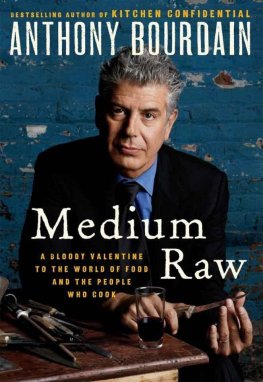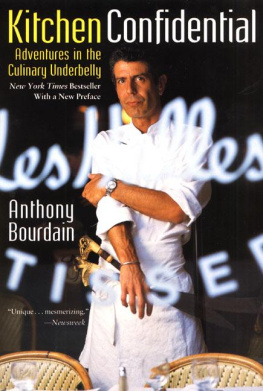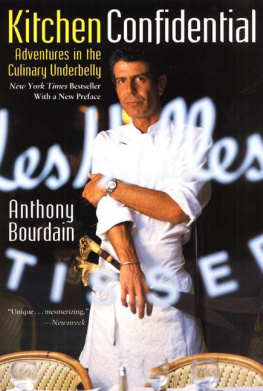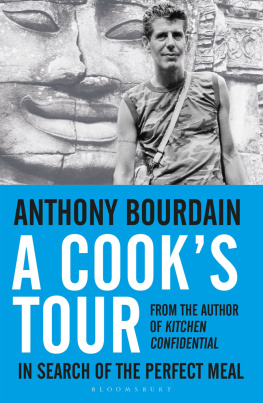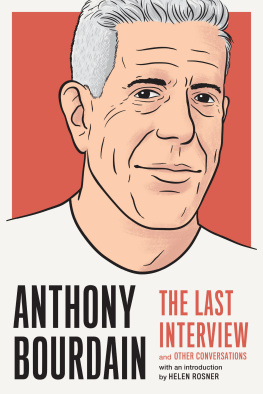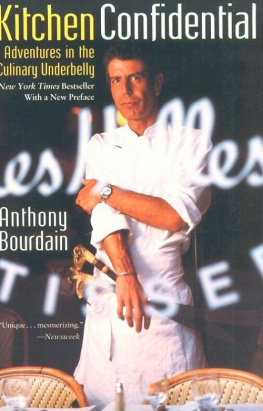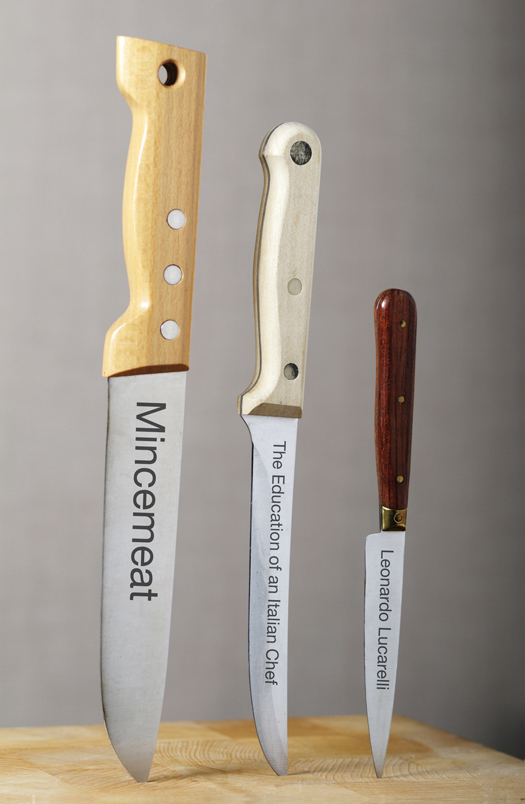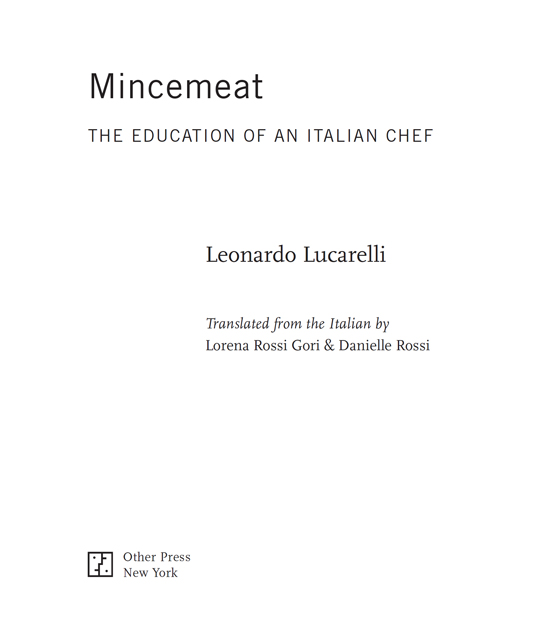Copyright 2016, Garzanti S.r.L., Milano
Gruppo editoriale Mauri Spagnol
Originally published in Italian as Carne Trita
by Garzanti Libri in 2016.
Translation copyright 2016, Other Press
Production editor: Yvonne E. Crdenas
Text designer: Julie Fry
This book was set in Scala Pro and Trade Gothic by
Alpha Design & Composition of Pittsfield, NH
All rights reserved. No part of this publication may be reproduced or transmitted in any form or by any means, electronic or mechanical, including photocopying, recording, or by any information storage and retrieval system, without written permission from Other Press LLC, except in the case of brief quotations in reviews for inclusion in a magazine, newspaper, or broadcast. For information write to Other Press LLC, 267 Fifth Avenue, 6th Floor, New York, NY 10016. Or visit our Web site: www.otherpress.com
THE LIBRARY OF CONGRESS HAS CATALOGED THE PRINTED EDITION AS FOLLOWS:
Names: Lucarelli, Leonardo, 1977 author.
Title: Mincemeat : the education of an Italian chef / Leonardo Lucarelli ; translated from the Italian by Lorena Rossi Gori and Danielle Rossi.
Other titles: Carne trita. English
Description: New York : Other Press, [2016] | Description based on print version record and CIP data provided by publisher; resource not viewed.
Identifiers: LCCN 2016017889 (print) | LCCN 2016017657 (ebook) | ISBN 9781590517925 (ebook) | ISBN 9781590517918 (hardcover)
Subjects: LCSH: Lucarelli, Leonardo, 1977 | CooksItalyBiography. | RestaurateursItalyBiography.
Classification: LCC TX649.L84 (print) | LCC TX649.L84 A3 2016 (ebook) | DDC 641.5092 [B]dc23
LC record available at https://lccn.loc.gov/2016017889
Publishers Note: Although the events described in this memoir are true, the names and identifying characteristics of some people and places have been changed.
eBook ISBN: 978-1-59051-792-5
v3.1
for Giuli
Contents
If you put aside those prodigious, singular moments that destiny gives us, love of ones work (a privilege enjoyed, unfortunately, only by a few) is the best, most concrete approximation of happiness on earth but most people dont realize this.
Primo Levi, The Monkeys Wrench
You start working in a kitchen because you stumble into it. Because when you were growing up, you would get home after school and you were alone or, at most, it was you and your kid brother. Because at some point you thought you knew how to cook. And when you saw someone working in a kitchen you thought that he was some modern-day hero, a daredevil, a sultan, or an impostor, and if an impostor can cook, then so can you.
You start working in a kitchen because when youre a cash-strapped student, nothing could be easier than slaving away in a restaurant, and since kowtowing to spoiled customers isnt your thing, its way better being a cook than a waiter. Because you want to grow your hair and a beard, and cooks are junkies and alcoholics and womanizers and artists. Because Orwell worked in a kitchen, and even if you cant imagine yourself as the next Gordon Ramsay, you can still dream of being the next George Orwell. Because there comes a time when it seems all too easy, before it becomes insurmountably difficult, but then it slips back into easy again. Because at twenty you crave a job to call your own, and its not too hard to get one in a kitchen.
You start working in a kitchen because you couldnt get it across to your mother that you really wanted to do something else, but more than that, you couldnt explain it to yourself. Because you came across some cooks with a heart, and at first, cash in hand is easier to deal with than a regular job but then again, who in their right mind would ever give you a regular job? And you like being able to quit at the drop of a hat knowing that theres another job just across the piazza. Because deep down you like to keep saying youll quit this shitty job for good, but then you never do, because you cant, and opportunity doesnt come knocking at your door all that often. Because food nourishes you, but it also makes you happy.
You start working in a kitchen because every restaurant is a world unto itself and the chef is always at the top of the heap and if a cute girl is out to fuck someone, shell start at the top.
Because for you cooking is an act of love, but you dont give a shit about love. And if someone like Joe Bastianich can make money, then so can you. Because you know there are lots of jobs behind the kitchen door. And you are genuinely convinced that every man, woman, and kid should know how to cook.
Because you like to lean out over the edge and survey the scene below.
You start working in a kitchen because youre good at it. Because you get a kick out of pulling rank. And kitchens still let you start from the bottom and sweat your way up the pecking order. Because creative jobs usually call for expensive schools and expensive equipment. And everyone knows that the greatest chefs are the ones who have washed mountains of dirty dishes and that MasterChef is a scam. Because you like being an artisan of your craft.
Because once you discover the power of food, you just cant give it up, not even when the shattered shards of your life are being hurled all over the place.
Because being a chef is an alibi. And cooking is like telling a story or writing a book and you think you have tons of things to say.
Because deep down you feel like a loser, but youre the prince of losers. And maybe, just maybe, everyone feels like that, at first.
You start working in a kitchen because you can tell tall tales about what you do. Because while others might work in a kitchen to pass time, youd do anything else to pass the time away from the kitchen. Because making a living by cooking makes you feel important. And theres something irresistible about working at night. Because you like having the keys to the restaurant and suppliers on speed dial.
You start working in a kitchen because a chefs wages are still pretty decent, all things considered.
You start working in a kitchen because youve never minded teetering on the edge of legality; otherwise youd be an architect or a doctor. But youve never had the doggedness and dedication to be an architect, or a doctor, or anything else, for that matter. Because food never lies but everything else connected to it does. Because you like being a bullshit artist, yet in all that heat and sweat and shouting you learn to understand people, and kitchens breed friendships with people youd never talk to otherwise and probably wont, if you come across them anywhere other than a kitchen.
Because professional chefs are the only ones left who are passing on traditions. And you enjoy handling tons of meat, you love the smell of cold rooms and porcini mushrooms and fresh fish arriving at the crack of dawn and the moist panties of waitresses at the end of the day.
Because outside the kitchen you are a misfit and you know youd be torn to shreds. And you can be called a chef without knowing how to cook all that well, and you can earn the respect of your coworkers even if you are a son of a bitch. And your grandma used to say that undertakers and cooks will never be out of work, and even though you think shes just a little old lady thinking little old lady thoughts, at the end of the day shes telling it exactly how it is


